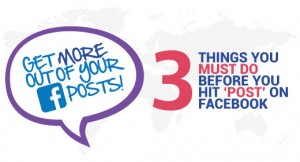Let’s share a warning for candidate Hillary Clinton, along with Ted Cruz, Marco Rubio and the airplane hanger full of other GOP presidential hopefuls who are suiting up for the battle to win the right to redecorate the Oval Office, ride in Air Force One and know that when the White House Band plays “Hail To the Chief,” they’re hailing them.
Until recently, 2016 candidates merely had to prove they could meet Constitutional requirements to be president (over 35, natural-born U.S. citizen, etc.), raise a war chest of up to $ 750 million, win 270 of the 538 electoral votes in the Electoral College, and convince voters that they’re capable of crushing ISIL, ending Iran’s race to develop a nuclear weapon, and transforming the U.S. economy into a full-employment paradise.
But now it’s clear that any credible candidate must also clear one additional hurdle: prove themselves to be master of their domain – their online domain that is – or face a public relations immolation.

Indeed, the first PR crisis faced by just-announced U.S. Senator Ted Cruz’s campaign arose from the discovery that his staff had neglected to buy the domain name TedCruz.com for his presidential bid. This only revealed further horrors, when it was discovered that the URL led voters to a pro-Barack Obama site (pictured above). What’s more, the domain name TedCruzForAmerica.com diverts voters to a website praising Obama’s Affordable Care Act. Mashable taunted Cruz with “Campaign 404: TedCruz.com is not ready for 2016.”
Similarly, here are other, recent domain name fails from 2016 presidential hopefuls:
- Potential candidate U.S. Congressman Paul Ryan doesn’t own PaulRyan.com. Go there and you’re redirected to a UK-based music store.
- Former Florida Gov. Jeb Bush doesn’t own JebBushForPresident.com. Instead, two bearded gay men from Oregon, who are eager to talk with you about same-sex marriage and other LGBT issues, registered that domain name address.
- You’ll find at www.JebBushForPresident.net an anti-Bush site created by a “loyal Republican” devoted to “saving the Republican party from supporting Jeb Bush for president.”
So what can marketing and PR pros learn from this domain name debacle? Our MaccaPR blog sought advice from attorney Kristine Dorrain, director of Internet and IP Services for Minneapolis-based FORUM (formerly, the National Arbitration Forum), which has administered resolutions of domain name disputes involving celebrities such as Mick Jagger, Eva Longoria and, yes, even Hillary Clinton.
Register Your Domain Name Now – Right Now!

How big a faux pas was it that Senator Cruz’s staff forgot to buy the domain name TedCruz.com for the Republican candidate’s online efforts? The negative PR fallout alone included such headlines as “Cruz Website Domains Held Hostage” (CNN) and “Ted Cruz Doesn’t Own TedCruz.com” (Time). Brand marketers and presidential candidates can avoid such humiliation, says Dorrain.
“Personally, I’m amused by the brouha over candidates not owning their domain names,” explains Dorrain. “In his defense, both ‘Ted’ and ‘Cruz’ are quite common names, and the problem is – once someone has purchased a personal name as a domain name, they are usually at the mercy of that registrant. It seems that the campaign staff surrounding the candidate should have known better, but we don’t know whether they tried to buy it and were rebuffed. A presidential candidate who doesn’t own his or her own domain name suggests that they’re not looking to the future, a time when everyone is mobile, everything is online and every voter is connected digitally.”
As both political campaigns and brand wars are increasingly being fought on social media channels, ownership of relevant domain names can become a matter of brand survival. Mind you, candidates have struggled with this domain name issue for years. During the 2012 presidential campaign, candidate Gov. Rick Perry did register RickPerry.org, but not RickPerry.com, which redirected voters to a site operated on behalf of his rival Ron Paul – a situation that inspired the National Journal to diss “Rick Perry Has a Domain-Name Problem.”
Although many campaigns try to prophylactically purchase the most common iterations of a candidate’s name, “you can’t purchase everything,” sighed Vincent Harris, who served as digital campaign advisor to Newt Gingrich and Ted Cruz, in Politico.
Some long-established political candidates and brands may have an advantage over newcomers seeking to belatedly control their domains. “Hillary Clinton understood the impact of owning campaign domain names more than 10 years ago,” says Dorrain. “Look, her husband has been president twice, so the Hillary Clinton campaign team is politically and digitally savvy. She’s had years to figure out what domain names she needed to own.” In fact, back in 2005, then-U.S. Senator Clinton won the Uniform Domain Name Resolution (UDRP) case involving her trademark ownership of the domain, HillaryClinton.com.
To be sure, brand marketers may have it a bit easier than politicians: the domain name system is designed to protect trademarked names and words (such as Hormel SPAM or General Mills’ Cheerios). Even if a cybersquatting troll registers a domain with your brand’s name, and uses it to profit from your trademark, Dorrain predicts that you could recover ownership of that domain name.
Much depends on each domain name owner’s use. For example, the superstar singer Madonna could retrieve Madonna.com if the domain name is being used for interstate commerce (sales of CDs, T-shirts, etc.) that profit from her trademarked name.
But get this: if the Catholic Church registered Madonna.com to serve as the domain for its site about the Virgin Mary – not profiting from the singer’s goodwill, but focused authentically on sharing images of the Madonna painted by Leonardo Da Vinci and Michelangelo – the church would likely be able to demonstrate a legitimate interest. This could mean the church might be able to maintain ownership, even against the lawyers for Madonna Louise Ciccone, who is decidedly No Virgin.
It’s worth noting that ChrisChristie.com is registered to a Wisconsin-based computer programmer named Chris Christie, who could defend ownership against the Governor of New Jersey – Chris Christie is, after all, the programmer’s actual name.
“Everyone – marketer or private citizen – should register their first and last name for online use,” counsels Dorrain (pictured at left). “You never know what you’re going to be doing with your life in a few years! Imagine that your son is a 15-year-old basketball star in high school, someone sees him play and says, ‘wow, he’s really good,’ and locks up your teenager’s domain name. Five years later, he’s rocking basketball in college – but someone else owns his domain name for a fan site.”
In fact, ZDNet advised after the TedCruz.com domain crisis, “if you’re thinking your little boy or girl might be president one day, register their domain name now! By the time they’re old enough to vote, never mind run, it may be too late for them to get their best site.”
You believe that’s thinking too far ahead? The National Journal noted that RickPerry.com was originally registered (not by Perry himself) as far as back as 1998, when young Perry was still just Texas’ Agriculture Commissioner.
Recognize You Can’t Stop [Your Brand] Sucks
Marketers weren’t happy this year when a new domain was announced – .sucks – which Vox Populi Registry innocently claimed was “designed to help consumers find their voices and allow companies to find the value in criticism. Each “.sucks” domain has the potential to become an essential part of every organization’s customer relationship management program.” Oh, puh-lease Vox Populi!
“There is a place for ‘I Hate You’ on the Internet,” says Dorrain, which explains the profusion of brand hate sites from www.ComcastMustDie.com to www.SprintPCS-Sucks.com. Clinton does not own HillaryClintonSucks.com, the domain JebBushSucks.com is “reserved for future use,” MikeHuckabeeSucks.org is currently for sale, and someone (perhaps you?) already registered MarcoRubioSucks.com back in October 2014.
Although brands could buy their own .sucks domain name (if unsold) later this year for as little as $ 10.00 annually, PC World advised marketers against that investment. “Microsoft could stop XboxOne.sucks from blossoming into life, but what about XboxOneReally.sucks, XboxOneReallyReally.sucks, WhyTheXboxOne.sucks, or ManTheXboxOneReallyReallyReally.sucks? Unless major companies plan to use ICANN’s Uniform Domain Name Dispute Policy against every .SUCKS domain that mentions them there’s just no stopping the .SUCKS revolution.”
Use singer (and, MaccaPR-dubbed “Grand Mistress of Social Media Marketing“) Taylor Swift as your mentor on this issue: when new top-level domains, including .sucks, were unveiled, the singer immediately bought and registered several variations to inoculate her online presence from, say, TaylorSwift.porn, .sucks or .adult. Although three domain names were purchased, other objectionable ones like TaylorSwift.sex were not. Swift’s team recognized it didn’t need to own all domain name iterations of her trademarked name.
As with everything on the Internet that relates to consumer criticism and even anti-brand rage, the only feasible path for companies to take is: acknowledge you no longer ‘own’ the conversation about your brand, respond to legitimate criticism, and try harder not to sell products or services that actually do “suck.”
(268)





